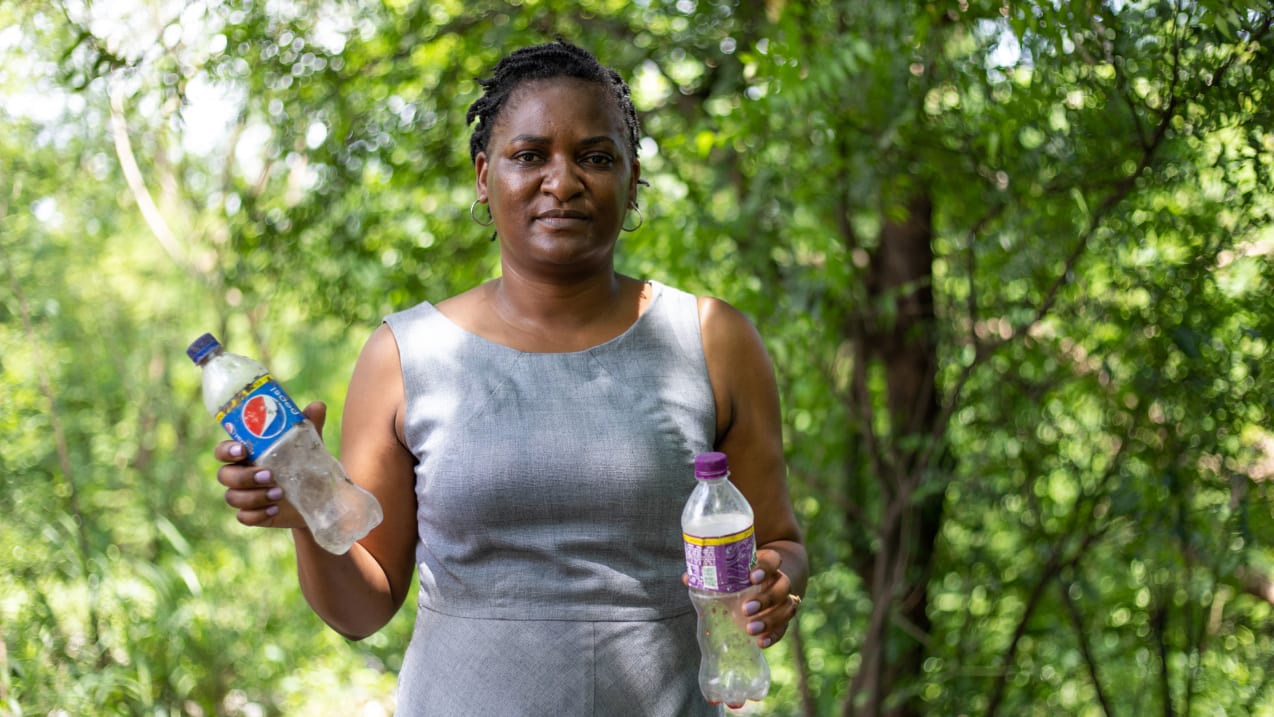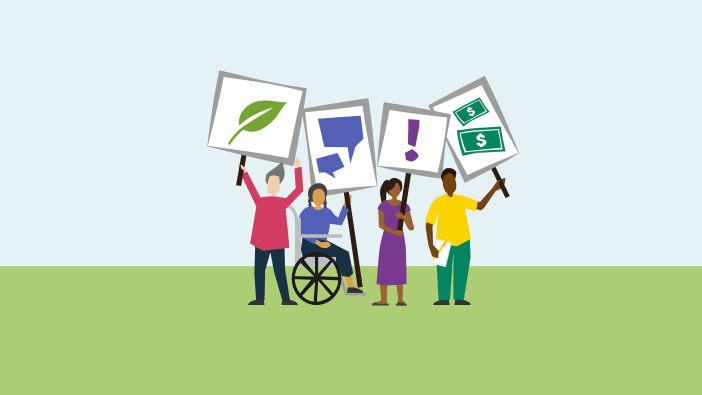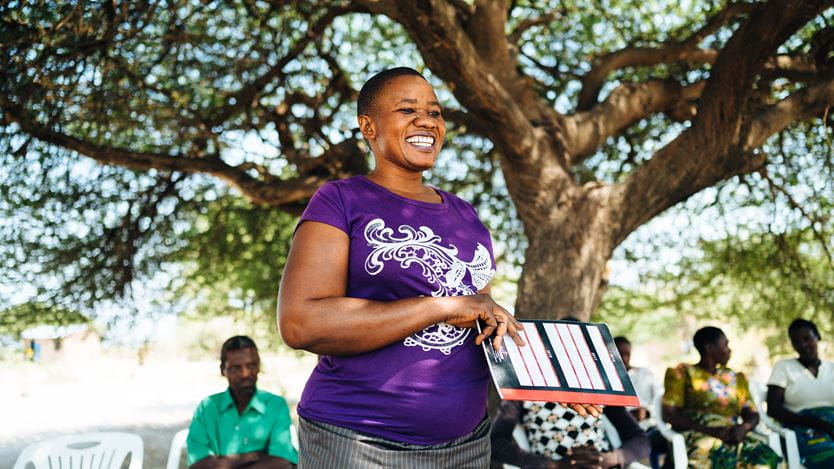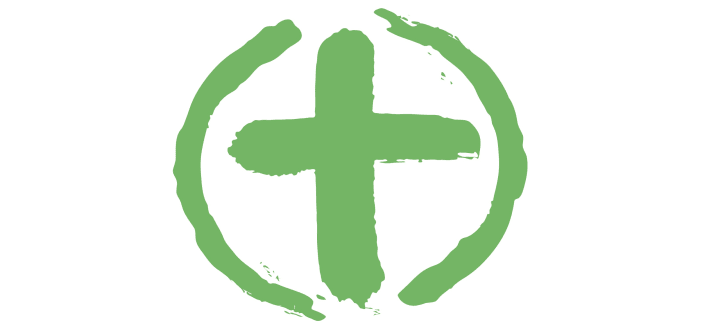Tearfund works through churches in some of the world's poorest places, helping them to respond to the needs around them. When local churches work together with their local communities to identify and respond to shared needs, using their own resources, we call this, Church and Community Mobilization or CCM.
For many poor communities, their own resources are limited, but integrating advocacy into the CCM process, enables local communities to also identify and access local government resources, to address their development needs.
“They're identifying the government as a resource. So they say, ‘we have resources that are locally available - we mobilise them. But, the government is also a resource, so why don’t we bring them together so that we expand our resources to enable us to meet our needs?’“ - Jane Achaloi (CCM Cluster Manager).
This process which we call CCM advocacy opens up a world of new possibilities.
“The church began to meet together and make projections and plans for the future for its community” - Victor Vaca (President of Union Cristiano Evangelica.
“Now the blend of advocacy helped the community - actually opened the eyes of the communities - to see beyond.” - Sam Emenyu (Mission Development Coordinator).
“We are proud because we achieved what we set out to do. We have transformed our situation from what is was, to what it is today.” - Anne-Marie Acipa (Advocacy Committee member).
CCM advocacy is a local level advocacy approach, in which local churches catalyse their communities to influence the decisions, policies and practices of powerful local decision makers. Government officials, national, regional, and local, have an obligation to take responsibility for their actions and to then use their budgets wisely on behalf of their constituents. CCM advocacy empowers ordinary people to participate directly in building accountability between a government and its citizens.
The Owii community in Uganda and Tipa Tipa in Bolivia are just two of the communities who are celebrating what they have achieved through CCM advocacy.
“Data has to be collected to enable advocacy. Advocacy cannot start if the advocacy issues are not identified.” - Felix Emasu (Advocacy Committee member).
“Key priorities were: health, education, water and good livelihoods.” - Katie Adao (PEP facilitator for Owii).
“After collecting the data it was analysed. Our first priority in this area was health.” - Christine Iwanu (PEP beneficiary for Owii).
“The community asked for mobile health clinics and outreaches, and the government responded positively.” - Katie Adao (PEP facilitator for Owii).
“Those communities that are willing to handle advocacy should understand their policies, the policies within their country, the acts, the decisions that are made in the parliament from time to time, because there is room for them to advocate if it connects directly with the provision of government.“ - Patrick Onaga (Program Officer).
“It is the obligation of the mayor - the constitution tells him that as a public servant, he has to serve me, as a member of the public.”
“Decisions are taken by all the people of the town. I transmit these decisions to the authorities.” - Carlos Butron (President of Tipa Tipa).
“We have worked together, as church and community, for eight years, to get a wastewater network in Tipa Tipa” - Cornelia Claros (former community leader, Tipa Tipa).
“After the construction of the tank, the church evaluated how this had benefited community members. It was unanimous, everyone was very happy. We have never gone to put pressure, like many others, holding marches or protests. We have always used dialogue and worked in partnership.”
When advocacy is successfully integrated into CCM, churches are able to build bridges within their communities, communities are empowered to dialogue with their government officials, and governments are enabled to respond effectively to the needs of their citizens. By equipping government, communities and local churches to work together, Tearfund is enabling people to lift themselves out of poverty.
“In our language, they say, ‘A stick that is supposed to be used for killing a snake should be very near’. But if you're going to run to Kampala to get a stick to come and kill a snake in Soroti it will have disappeared. And that's the difference. So we are going to use the community members who are within to kill the snake called poverty - structural poverty.” - Sam Emenyu (Mission Development Coordinator).








